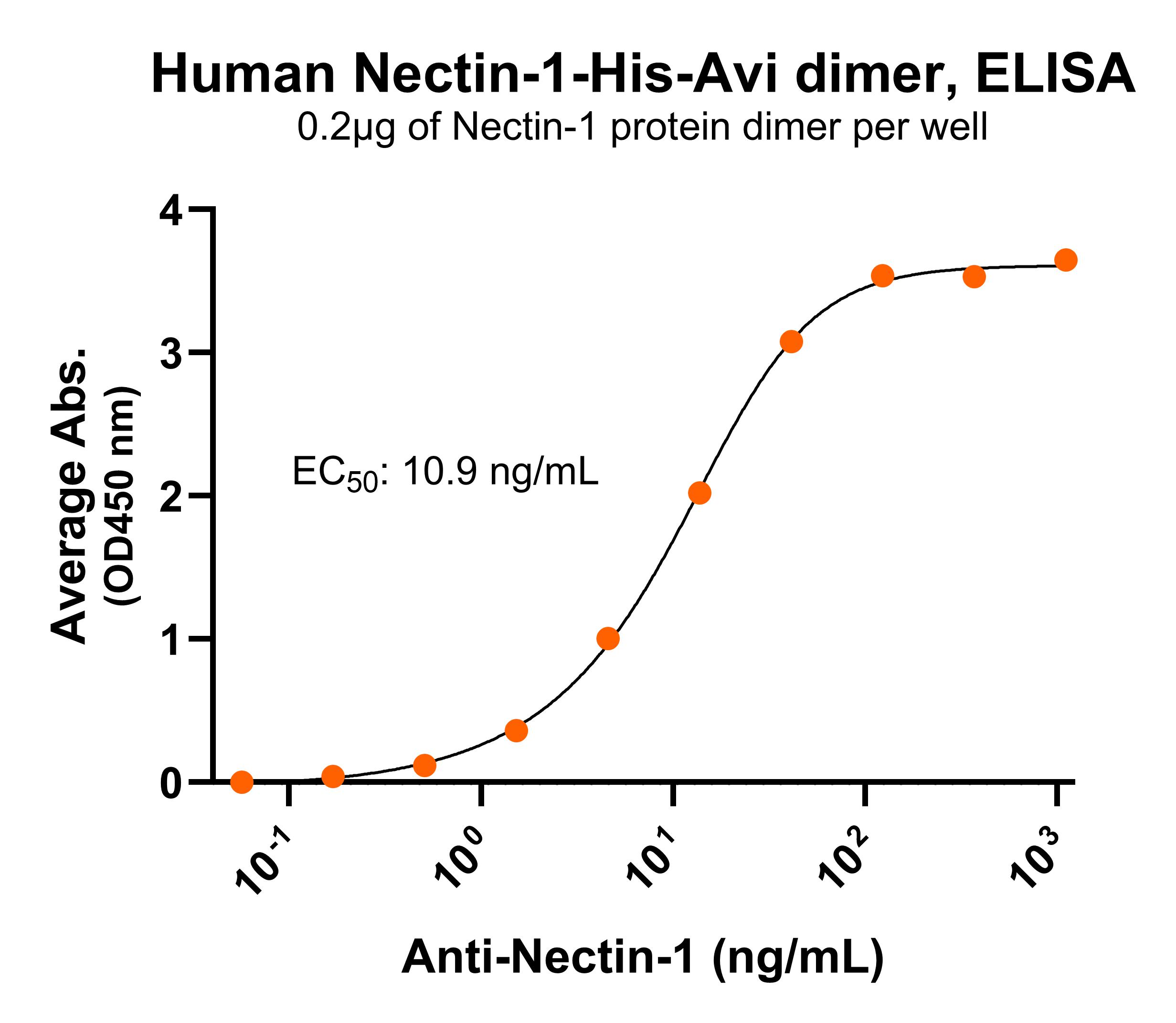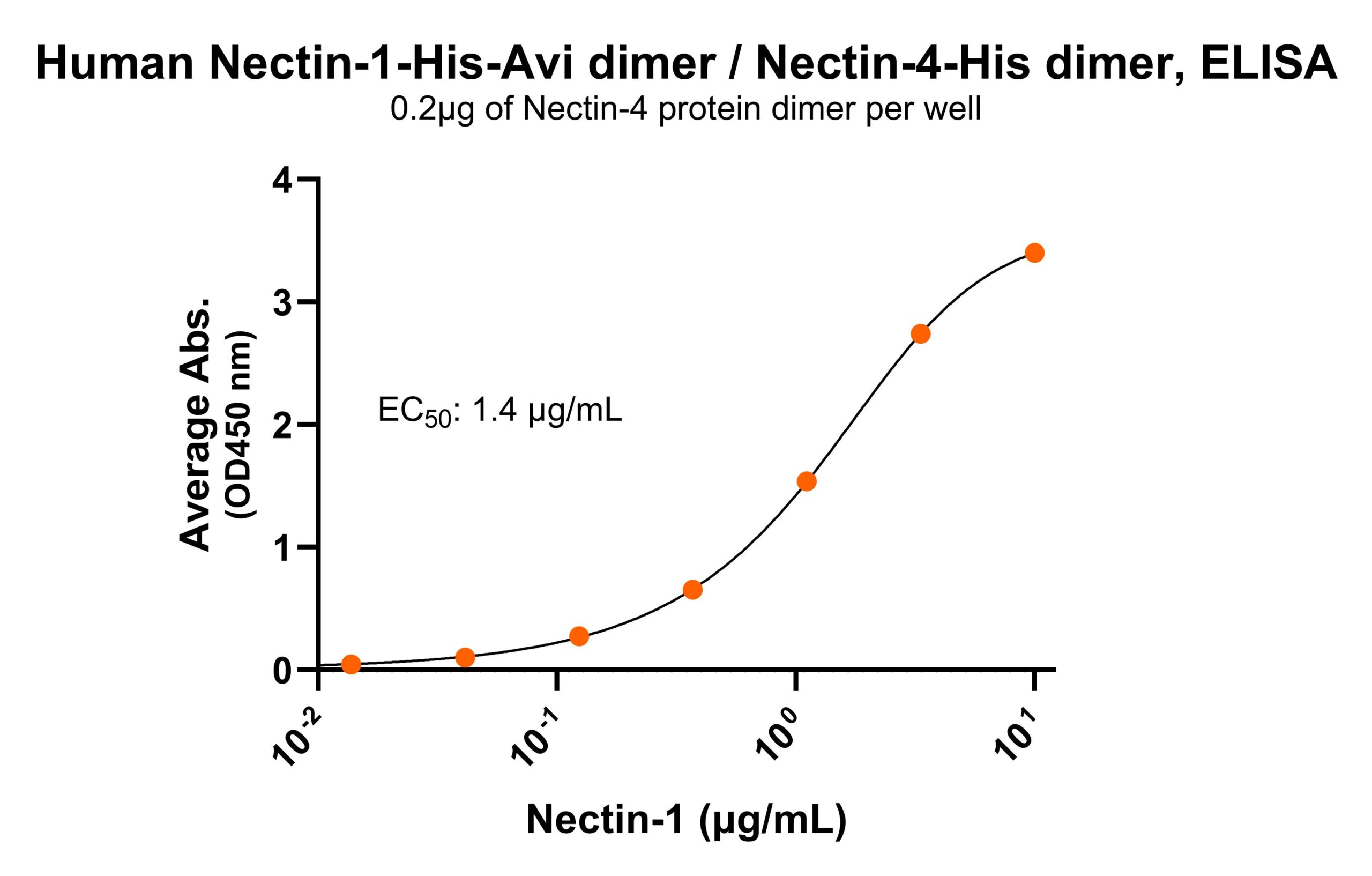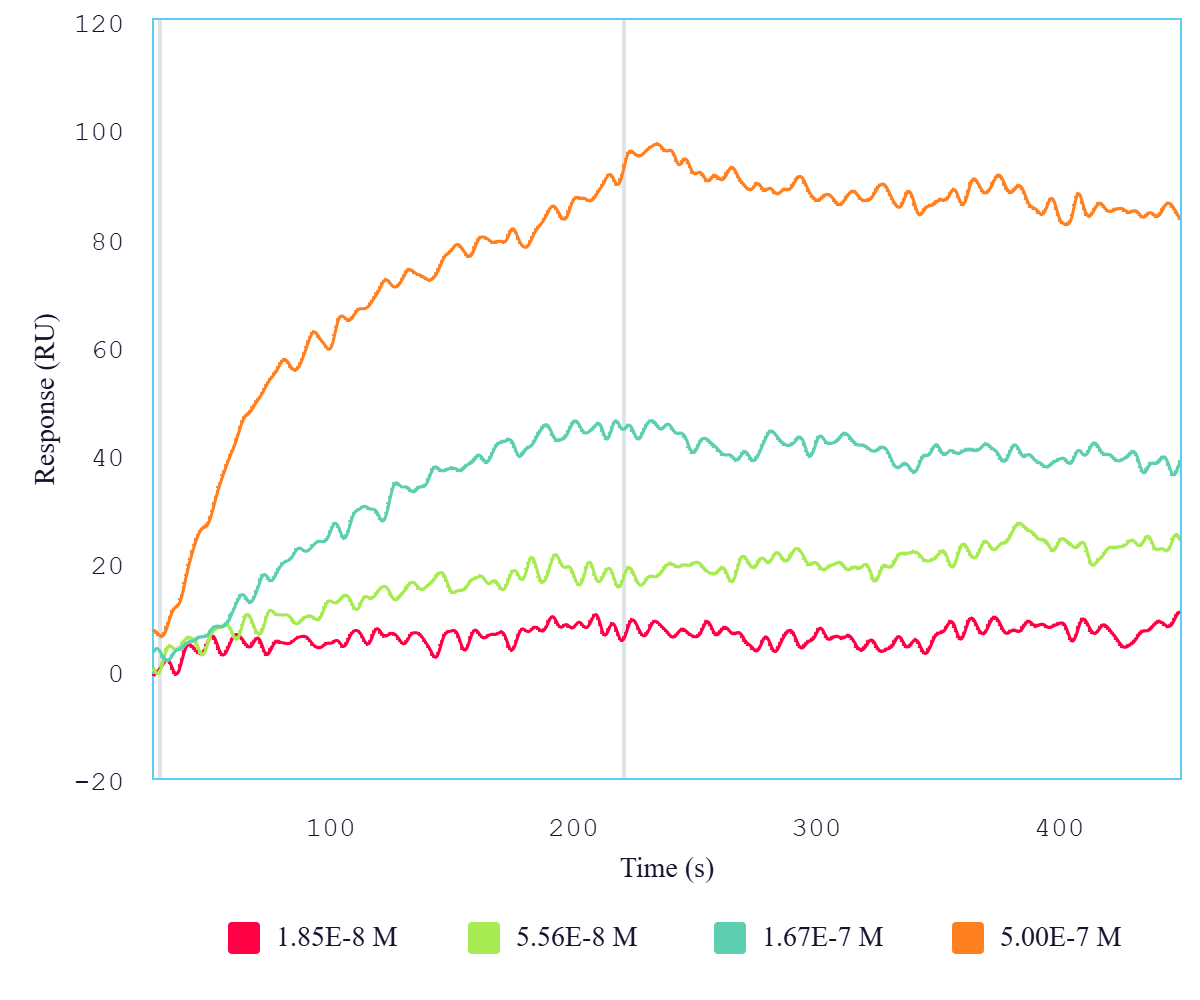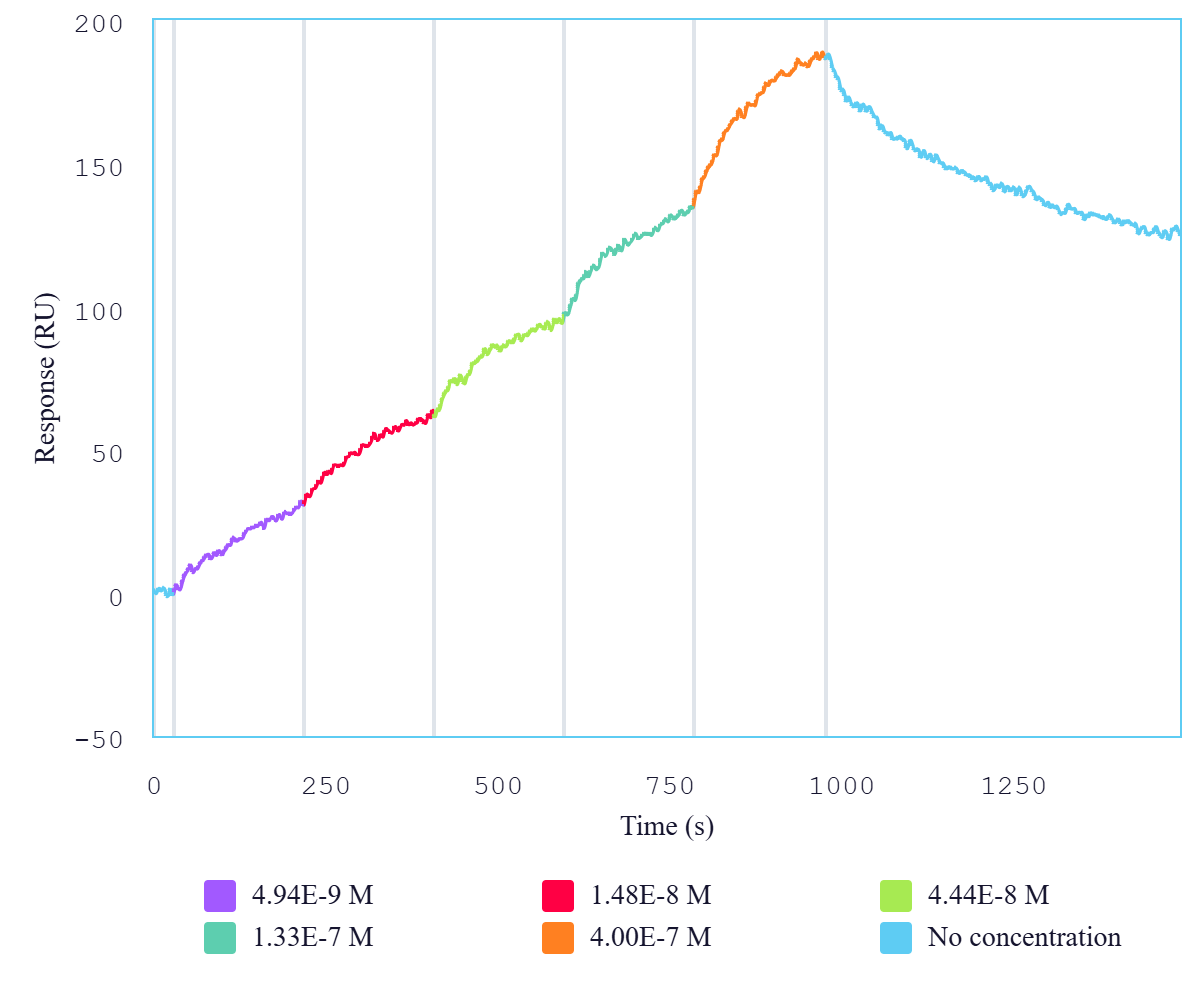 MW: Molecular Weight marker reduced condition
NR: Nectin-1 dimer under non-reduced condition
MW: Molecular Weight marker reduced condition
NR: Nectin-1 dimer under non-reduced condition Immobilized human Nectin-1 protein dimer
Immobilized human Nectin-1 protein dimer His-Avi tag (Cat. No. CSP-25195-03) at 2 μg/mL (100 μL/well) can bind anti-human Nectin-1 monoclonal antibody with half maximal effective concentration (EC50) range of 5.5-21.8 ng/mL (QC tested).
His-Avi tag (Cat. No. CSP-25195-03) at 2 μg/mL (100 μL/well) can bind anti-human Nectin-1 monoclonal antibody with half maximal effective concentration (EC50) range of 5.5-21.8 ng/mL (QC tested). Immobilized human Nectin-4 protein dimer
Immobilized human Nectin-4 protein dimer His tag (Cat. No. CSP-24016) at 2 μg/mL (100 μL/well) can bind human Nectin-1 protein dimer
His tag (Cat. No. CSP-24016) at 2 μg/mL (100 μL/well) can bind human Nectin-1 protein dimerFor Research Use Only (RUO)